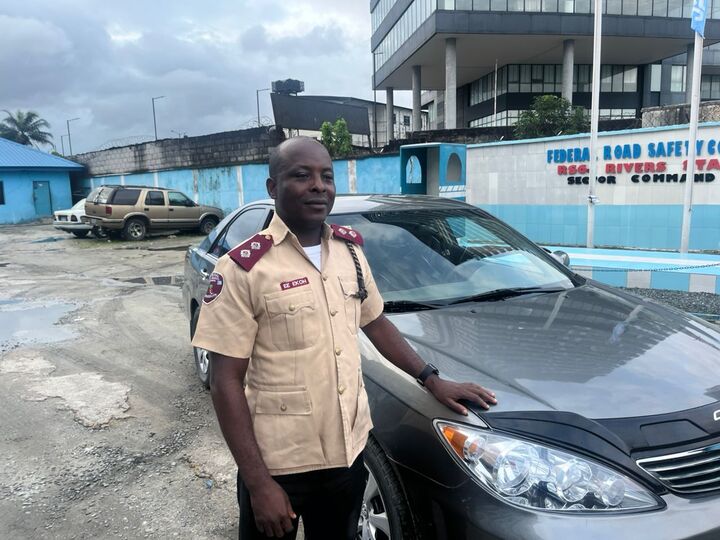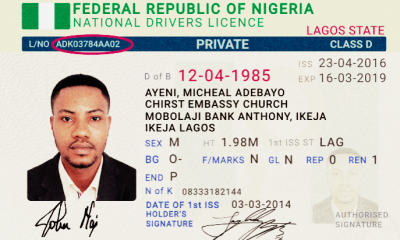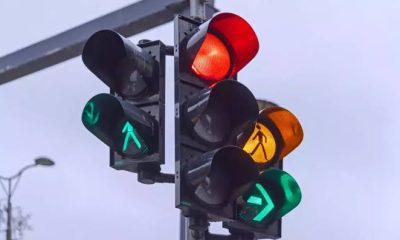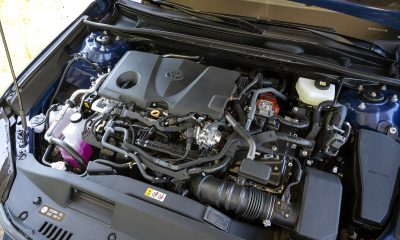News Update
Fight Against Auto Theft: FRSC Recovers 35 Stolen Vehicles in Six Months

In a country where vehicle theft has long been a silent epidemic, a new wave of technology and commitment from the Federal Road Safety Corps (FRSC) is quietly rewriting the narrative.
Also Read: Blind Spots: The Invisible Zones That Cause Visible Crashes
Between January and June 2025, the FRSC recovered 35 stolen vehicles across Nigeria using advanced tracking and verification systems.
From Toyota Camrys to Lexus SUVs, these vehicles were retrieved through the National Vehicle Identification Scheme (NVIS), a system designed to create a unified database of all vehicles operating in the country. This breakthrough not only restores confidence for victims of theft but also signals a turning point in Nigeria’s fight against organized auto-crime.
How the Recoveries Happened
The FRSC revealed that most of the recoveries were made possible through routine checks at highway patrol points, registration offices, and during special enforcement operations. Using NVIS and VIN (Vehicle Identification Number) scanning devices, officials were able to quickly identify mismatched records and trace stolen cars back to their rightful owners.
According to FRSC spokesperson Bisi Kazeem, the Corps partnered with the police and customs to cross-reference vehicle histories. “This synergy has made it nearly impossible for criminals to move stolen vehicles across state lines undetected,” he said.
Breakdown of Recovered Vehicles
- Toyota models accounted for the majority, with Camrys, Corollas, and Hilux pickups leading the pack.
- Lexus SUVs, particularly the RX 350 were also high on the recovery list, reflecting their popularity among car thieves.
- Commercial buses and smaller sedans made up the remaining recoveries.
Interestingly, several of the vehicles were intercepted at border points in Ogun, Katsina, and Adamawa states, where smugglers often attempt to transport them into neighboring countries like Benin, Niger, and Cameroon.
Why Vehicle Theft Persists in Nigeria
Nigeria’s vehicle theft problem is fueled by several factors:
- Weak documentation systems in the past that allowed fake plate numbers and forged papers.
- Cross-border smuggling networks that provide ready markets for stolen cars.
- Rising car prices due to inflation and import restrictions, which make stolen cars more attractive to buyers seeking cheaper alternatives.
- Low public awareness of vehicle verification services like NVIS.
Technology as the Game Changer
The introduction of NVIS and real-time VIN verification has been pivotal. Unlike before, when drivers could simply present papers without checks, FRSC officers now scan barcodes and cross-check vehicle histories instantly.
Additionally, the FRSC is piloting mobile verification apps that allow motorists to confirm whether the car they are buying has a clean record. This could significantly reduce the demand for stolen cars.
Voices from the Road
A Lagos businessman, Mr. Collins Adeyemi, whose Toyota Highlander was among the recovered vehicles, shared his relief:
“When my car was stolen at gunpoint in March, I thought it was gone forever. Two months later, FRSC called me that it was found during a checkpoint inspection in Edo. I couldn’t believe it. This shows technology really works.”
On the other side, some motorists argue that not enough is being done to educate the public. Mrs. Nkiru Okeke, a road safety advocate, noted:
“It’s not just about recovering stolen cars. Nigerians need to know how to avoid buying one in the first place. The FRSC must step up awareness campaigns.”
Broader Impact on Road Safety
Vehicle theft doesn’t just hurt victims, it also fuels reckless driving and crashes. Many stolen vehicles are driven at high speed to evade detection, increasing the risk of deadly accidents. Others are used for robberies and smuggling.
By clamping down on stolen vehicles, FRSC is indirectly improving road safety and weakening criminal networks that endanger ordinary motorists.
What Motorists Can Do to Protect Themselves
- Always verify VINs before buying any used car.
- Register with NVIS and ensure your details are updated.
- Install tracking devices to increase chances of recovery.
- Report suspicious plate numbers or vehicles to FRSC hotlines.
- Avoid “quick-deal” car sales with no documentation.
RoadKing Analysis: The Road Ahead
Recovering 35 vehicles in six months is commendable but when compared to the thousands stolen yearly, it’s just a drop in the ocean. For real impact, Nigeria must:
- Expand NVIS coverage across all 36 states with real-time data sharing.
- Introduce harsher penalties for buyers of stolen cars, not just the thieves.
- Invest in border security tech, drones, scanners, and license plate recognition.
- Run nationwide campaigns so car owners know their rights and responsibilities.
Conclusion
The FRSC’s success story proves that technology can turn the tide against Nigeria’s stolen vehicle menace. Every recovery represents not just a returned car, but also restored livelihoods, reduced crime, and safer roads.
As more motorists embrace verification systems and as enforcement agencies deepen collaboration, the days of car thieves freely operating on Nigerian roads may finally be numbered.





















